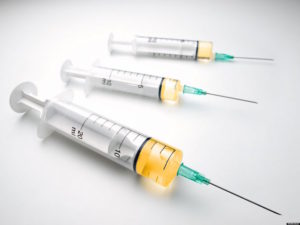
Wise words! ‘Cos you ARE better than that! Remind yourself of it as and when needed!

Tom's Blog on Life and Livingness

Wise words! ‘Cos you ARE better than that! Remind yourself of it as and when needed!

If you have any doubts or reservations as to the dangers and lack of certainty of conferred immunity from vaccines, here are 1000 scientific studies and reports showing the dangers and failure of vaccines from peer reviewed medical journals.
https://drive.google.com/file/d/0B-3HYCk9rvfGTmd1dEVoRFRfZW8/view

Some doctors do their homework and value their integrity and responsibility to their patients over and above money and adherence to the dictates of tyrannical authority.

This looks pretty jolly good! I am going to try it for Christmas.
https://www.texanerin.com/grain-free-italian-lemon-almond-cake-torta-caprese-bianca

A good viewpoint for parents. We have to know the truth here, despite the attempted cover up by the vaccine promoters.

And there have been NO safety tests done on the vaccines being administered to pregnant women. In fact according to statistics they substantially increase the risk of miscarriage!

The results are in on one of the first, large-scale studies on organic food consumption and cancer risks and they are significant and encouraging. It is widely recognized we need to do much more in preventing cancer, as opposed to treating it, and this study suggests that organic food may be an important piece of the puzzle.
A team of French government scientists analyzed 68,946 citizens in the NutriNet-Santé cohort. Individuals were surveyed to determine if those who ate more organic foods had lower cancer rates. Their new journal article, published online by JAMA Internal Medicine this week (that’s the prestigious journal put out by the American Medical Association), reports their key findings: people consuming organic food most regularly had 25% lower overall cancer risk compared to the group of people reporting very little or no consumption of organic food.
The differences were substantial and highly statistically significant – “participants with the highest frequency of organic food consumption had a 25% lower risk of being diagnosed as having cancer during follow-up compared with those with the lowest frequency” (Hemler et al., 2018). Significant differences in cancer rates were found for Non-Hodgkin lymphoma (as much as a 86% reduction!) and postmenopausal breast cancer, even after accounting for factors like socioeconomic status and exercise habits (Baudry et al., 2018).
Organic producers are extremely limited on what products they can use for pest control, resulting in lower residues of synthetic chemicals. To see this for yourself, check out our Dietary Risk Index which quantifies residue amounts in organic and conventional fruits, vegetables, and grains.
An invited commentary on the organic food-cancer paper appears in the same issue of JAMA Internal Medicine. In the piece by Hemler et al. (2018) entitled “Organic Foods for Cancer Prevention — Worth the Investment?” the authors first highlight the “probable human carcinogen” classification of the three widely used pesticides (diazinon, malathion, glyphosate), including by far the world’s most heavily applied pesticide (glyphosate) by the International Agency for Research on Cancer (IARC). They then note all three pesticides have been linked to non-Hodgkin lymphoma (NHL), and also acknowledge widespread exposure in the general population through mostly dietary sources.

Dr. Judy A. Mikovits, PhD, was thrown in prison after she refused to discredit her own research that led to the discovery that deadly retroviruses have been transmitted to 25 million Americans through vaccines.

Since this article was published total payouts for illness and death attributable to vaccines have exceeded 4 billion dollars. That despite a widespread ignorance of the vaccine injury reporting facility and denial by many front line medical personnel that vaccine injury is real. So much so that estimates put reports at 1 percent of actual incidents.
US Vax Court Sees 400% Spike in Vaccine Injuries, Flu Shot Wins Top Honors for Biggest Payout